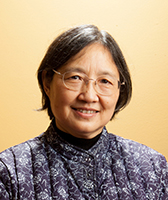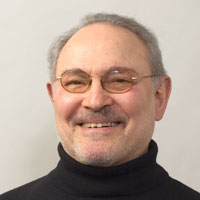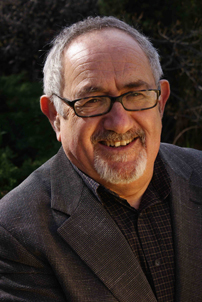Plenary speakers
The powerpoint of plenary presentations can be downloaded at www.um.edu.mo/fed/ICMI23/keynote
|
|
Liping Ma |
|
 |
Liping Ma was senior scholar at the Carnegie Foundation for Advancement of Teaching. Her book, Knowing and teaching elementary mathematics, is quoted on all sides of discussions about how to teach mathematics in elementary schools in the United States. She has a Ph.D. from Stanford University and earned a masters degree in education from East China Normal University. She is currently working independently.
More reference: https://lipingma.net/index.html |
Title: THE THEORETICAL CORE OF WHOLE NUMBER ARITHMETIC
Abstract: There are at least two different perspectives on whole number arithmetic in primary school. In the US, the tendency is to consider it as only learning to compute the four basic operations with whole numbers. In China, however, whole number arithmetic involves much more than simply learning to carry out the computational algorithms. For example, it is expected that students explore the quantitative relationships among the four operations, and represent these (sometimes quite sophisticated) relationships with (sometimes quite complicated) numerical equations. In the author's opinion, this exploration of quantitative relationships is made possible by the theoretical core that underlies school arithmetic. In this article, the author will present the central pieces of this theoretical core.
Important papers: 美国小学数学内容结构之批评 数学教育学报.pdf, 美國課程變化批評英文-馬立平.pdf
Link: https://cn.tmagazine.com/education/20131223/t23lipingma/en-us/ |
|
![]()
HYMAN BASS |
|
 |
Hyman Bass's mathematical research publications cover broad areas of algebra with connections to geometry, topology, and number theory. He is a member of the National Academy of Sciences and the American Academy of Arts and Sciences. Bass was president of the American Mathematical Society and of the International Commission on Mathematics Instruction. He has been collaborating with Deborah Loewenberg Ball and her research group at the University of Michigan since 1997 on the mathematical knowledge and resources entailed in the teaching of mathematics at the elementary level. Bass is interested in algebra/algebraic geometry and mathematics education. Chief fields of his research interest are: in mathematics – algebraic K-theory, number theory, group theory (geometric methods), and algebraic geometry; in mathematics education – subject matter knowledge entailed in teaching, practice-based research on teaching and learning, teacher education, reasoning and proof in school mathematics, and analysis of curriculum materials. |
His main research activities currently are in math education, focused largely on the mathematical knowledge demands of school teaching, how this can be measured, and the design of opportunities for teachers to gain such knowledge (in teacher education courses and in professional development). In mathematics he still is working on a project on flat families of reductive group actions on affine spaces, and also some arithmetic questions in combinatorial geometry. More reference: https://www.soe.umich.edu/people/profile/hyman_bass/
Title: QUANTITIES, NUMBERS, NUMBER NAMES, AND THE REAL NUMBER LINE
Abstract: This paper describes an approach to developing concepts of number using general notions of quantity and their measurement. This approach, most prominently articulated by Davydov and his colleagues, offers some affordances that are discussed. Some arguments favouring this approach are offered. First is a way of providing coherent connections in the development of whole numbers and fractions. Second is that it makes the geometric number line continuum present from the start of the school curriculum as a useful mathematical object and concept into which real numbers can be eventually explicitly developed. Third, in the Davydov approach, are some opportunities for some early algebraic thinking. I also present an instructional context and approach for the development of place value as a numeration system modelled on the invention of a place value system of number representation. |
|
BRIAN BUTTERWORTH |
|
|
Brian Butterworth is Emeritus Professor of Cognitive Neuropsychology at in the Institute of Cognitive Neuroscience at University College London. He taught at Cambridge for 8 years and is Professorial Fellow at the Melbourne University, and has held visiting appointments Padua, Trieste, MIT and the Max Planck Institute at Nijmegen. He was elected Fellow of the British Psychological Society in 1993 and of the British Academy in 2002. He has been the coordinator of two European networks to research the neural basis of mathematical abilities, Neuromath: Mathematics and the Brain (2000-2003) and Numbra: Numeracy and Brain Development (2004-2007). He has published many articles and books on mathematical cognition and on topics in the neuropsychology of language. Most recently, he co-edited and contributed two chapters to Educational Neuroscience. Examples of his papers can be found on his website, https://www.mathematicalbrain.com. He is currently working with Prof Bob Reeve at Melbourne U. on a longitudinal study of early arithmetic and on the numerical abilities of indigenous children in Australia. He is collaborating with colleagues around the world on the neuropsychology and the genetics of mathematical abilities. A long-term project is to persuade educators and governments to recognize dyscalculia as a serious handicap that needs specialized help. |
Title: LOW NUMERACY: FROM BRAIN TO EDUCATION
Abstract: It is widely agreed that humans inherit a numerical competence, though the exact nature of this competence is disputed. I argue that it is the inherited competence with whole numbers (the 'number module') that is foundational for arithmetical development. This is clear from a longitudinal study of learners from kindergarten to Year 5. Recent research has identified a brain network that underlies our capacity for numbers and arithmetic, with whole number processing a core region of this network. A twin study shows a strong heritable component in whole number competence, its link to arithmetical development and to the brain region. These findings have implications for improving numeracy skills especially among low-attaining learners.
Important papers: Butterworth 10 TICS.pdf, Butterworth 11 Current Biology.pdf, Callaway 13 Nature News .pdf |
|
